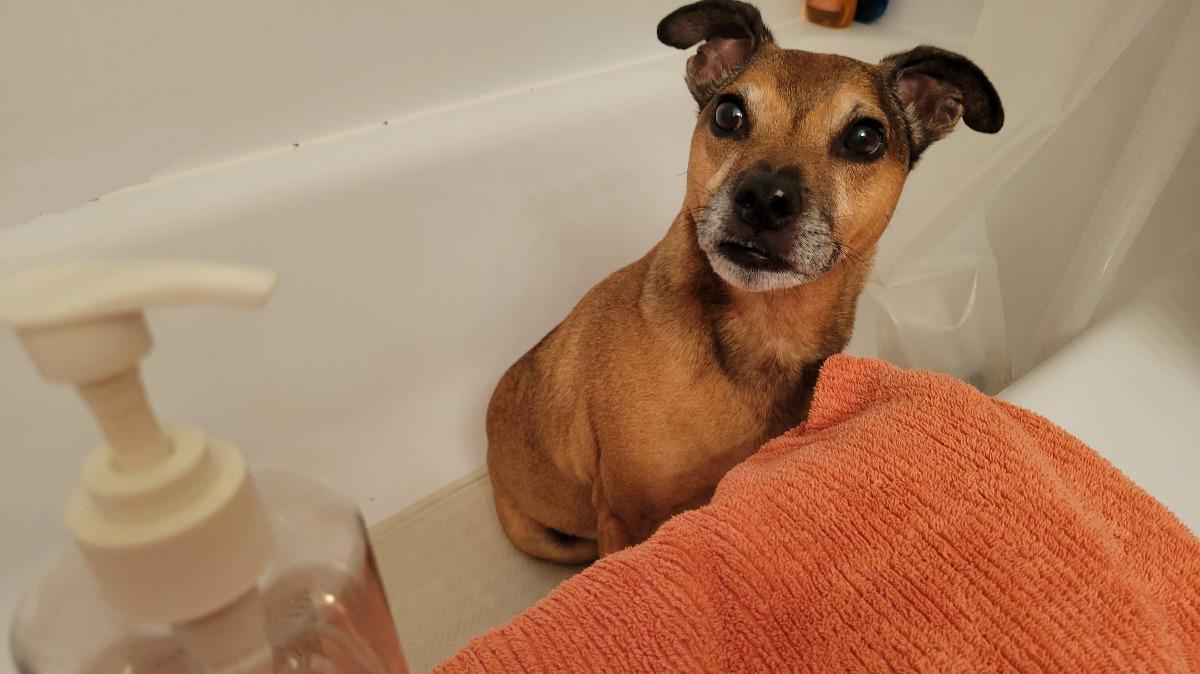How to Keep Your Pet's Coat Healthy

- posted: Mar. 12, 2023
How to Keep Your Pet’s Coat Healthy
Dogs and cats do a pretty good job of keeping their own coats clean. But some pets require more grooming and care than others. Let’s learn about some general pet care tips to keep those coats shiny and healthy!
Bathing—Cats rarely need to be bathed but an occasional bath for your feline friend may be needed. Don’t submerge cats in a tub of water. Place a towel in a sink or tub so the cat has something to stand on that is not slippery. Gently pour or spray water over your cat to wet her coat and lather with shampoo. Dogs may need to be bathed more frequently; however, bathing too often can lead to dry, irritated skin. It is recommended to limit bathing to every 2-4 weeks. Use cool or lukewarm water—warm water can be uncomfortable and drying. Make sure to thoroughly rinse your pet after shampooing. If your pet needs a therapeutic bath, be sure to allow medicated shampoo to have at least five minutes of contact time on the skin before rinsing.
Grooming—Cats and dogs with long hair coats need routine brushing and grooming. Long hair can become matted which can be uncomfortable and may cause skin problems. Brushing long-haired cats and dogs on a regular basis can help keep coats from tangling. If your pet does have mats in his fur that cannot be combed out, do not use scissors to remove them. An electric shaver is better so you do not accidentally cut your pet. If there are large mats covering a good portion of the body, or if you cannot remove the mats yourself, seek help from a groomer or veterinarian. Many long haired pets need their coats to be clipped or shaved periodically (typically every 6-8 weeks, but this could vary depending on your pet’s breed or individual coat/coat length preference). Keeping the coat shorter can make general maintenance easier and is important if your pet is prone to developing mats. Short coated cats and dogs may also benefit from occasional combing or brushing to remove loose hair and spread natural skin oils over the coat.
What if your pet just has dry skin? Mild dander without itching is not usually cause for concern. Dander can look more pronounced on dark fur and may be more apparent if your pet is excited or stressed. But, if your pet’s skin seems excessively dry, adding oral omega 3 fatty acids (fish oil) may help to keep skin well hydrated and healthy. Brushing or combing your pet also helps distribute natural oils through the skin and coat, and there are some leave-on conditioning sprays and lotions that may be beneficial.
Skin problems—If your pet has excessive dander, hair loss, scabs, bumps, odor or redness or if your pet is licking or scratching, make an appointment with your veterinarian. Allergies, external parasites like fleas or mites, and skin infections require proper treatment. Skin problems can be very uncomfortable for your pet and should be treated as soon as possible.
Skin and coat care for our pets is important to their overall health. Keeping your pet properly brushed and groomed can reduce dry skin and skin irritation. However, if your pet is itchy or appears to have any skin irritation, take your pet to the vet for evaluation and treatment. Keep pets happy, healthy and looking good!
This blog brought to you by the Patton Veterinary Hospital serving Red Lion, York and the surrounding communities.
Location
Patton Veterinary Hospital
425 E Broadway
Red Lion, PA 17356
